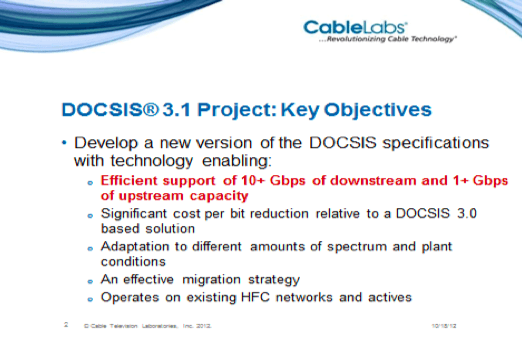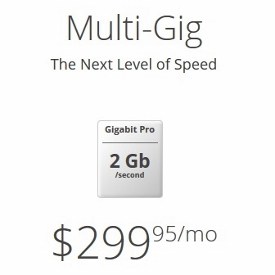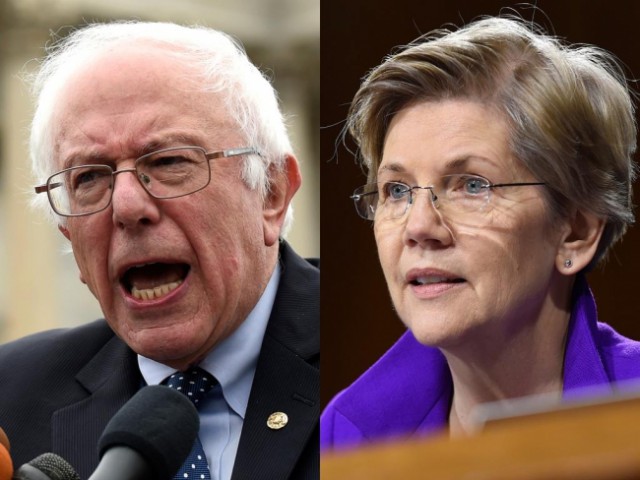
The original DOCSIS 3.1 standard offers up to 10/1Gbps speeds. Adding “full duplex” technology could boost that upstream speed as high as 10Gbps.
The cable industry is seeking to confront one of the strongest selling points of fiber broadband – identical upload and download speeds – by enhancing the DOCSIS 3.1 standard to support “full duplex” technology.
Since inception, cable broadband has been designed to deliver asymmetrical speeds, with priority given to download speeds. To this day, cable systems typically offer customers only a fraction of those fast download speeds for uploads. Cable broadband engineers originally assumed that since the majority of customer broadband usage would be on the download side, less bandwidth was needed for upstream activity. During the late 1990s, it was not uncommon to receive 6-10Mbps of download speed, while being offered just 384kbps for uploads. Today, 1-5Mbps is more typical for entry-level broadband upload speed, but that may no longer be sufficient.
The ongoing buzz for fiber broadband has called out this speed disparity. Most fiber to the home networks offer identical upload and download speeds, which can be as fast as 1,000Mbps or in some cases even faster. That marketing advantage may be costing some cable companies broadband customers. CableLabs, the engineering association of the cable industry, has been tasked with closing that gap and this week announced symmetrical speeds using the newest DOCSIS 3.1 specification are on the fast track and a release schedule could be announced as early as mid-2016.
Dan Rice, CableLabs’s senior vice president of R&D, told Multichannel News “full duplex” will be an extension of DOCSIS 3.1, not a replacement, which guarantees a faster rollout of the enhancement.
The delivery of symmetrical Internet speeds will likely require some cable operators to make hardware changes to their infrastructure. Key to that may be ridding cable plant of multiple amplifiers and filters installed between the cable company’s nearest fiber node and the customer’s home. As cable operators push more reliable fiber further out into their networks, reducing the amount of coaxial copper cable in use, network advancements become easier and less costly.
Whether cable companies will use the enhanced upstream broadband capacity to match their download speeds or just moderately improve them isn’t known. The completion of the enhanced specification will likely give engineers and accountants at each cable company a better idea of how much upload bang for the buck makes the most sense.


 Subscribe
Subscribe From the Department of Unintended Consequences,
From the Department of Unintended Consequences,  Oregon lawmakers wrote a law seeking to assure equal access by prohibiting companies from targeting only affluent neighborhoods for fiber upgrades, while forgetting to consider the cost of the service itself. Gigabit Pro will never feature prominently in Portland’s challenged neighborhoods at a cost of $4,600 for service during the first year.
Oregon lawmakers wrote a law seeking to assure equal access by prohibiting companies from targeting only affluent neighborhoods for fiber upgrades, while forgetting to consider the cost of the service itself. Gigabit Pro will never feature prominently in Portland’s challenged neighborhoods at a cost of $4,600 for service during the first year. Two of Google Fiber’s newest fiber cities will only get the gigabit fiber-to-the-home service because someone else already laid the fiber.
Two of Google Fiber’s newest fiber cities will only get the gigabit fiber-to-the-home service because someone else already laid the fiber.
 Finding affordable wireless Internet access that isn’t speed throttled or usage capped is becoming rare, but Stop the Cap! has been exploring a provider that offers both.
Finding affordable wireless Internet access that isn’t speed throttled or usage capped is becoming rare, but Stop the Cap! has been exploring a provider that offers both. Getting service established is the first minor hurdle. Because the contract plan is intended for business use, customers will need to list a company name on the enrollment form. It is acceptable to consider yourself a consultant or use your current profession if you intend to use the service at anytime/for any reason for work or while travelling for work. No formal business registration is required. Some customers sign up using their last name, as in “Smith Consulting.” You do have to give them your Social Security number or business Taxpayer ID Number to run the usual required credit check. Most applicants are easily approved within 72 hours and Sprint will then call to help arrange for service. If you are not approved, you can agree to pay an upfront deposit and after 12 on-time monthly payments, the deposit will be returned to your account.
Getting service established is the first minor hurdle. Because the contract plan is intended for business use, customers will need to list a company name on the enrollment form. It is acceptable to consider yourself a consultant or use your current profession if you intend to use the service at anytime/for any reason for work or while travelling for work. No formal business registration is required. Some customers sign up using their last name, as in “Smith Consulting.” You do have to give them your Social Security number or business Taxpayer ID Number to run the usual required credit check. Most applicants are easily approved within 72 hours and Sprint will then call to help arrange for service. If you are not approved, you can agree to pay an upfront deposit and after 12 on-time monthly payments, the deposit will be returned to your account.